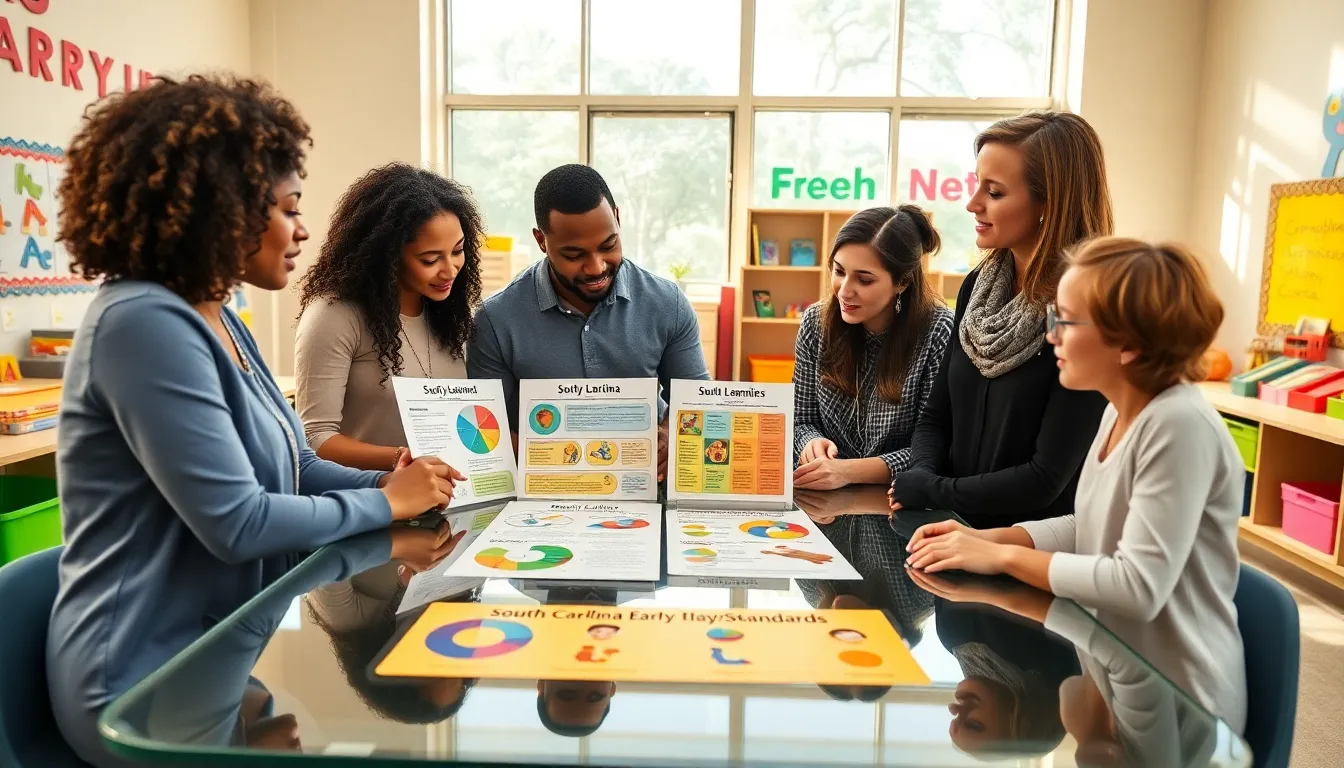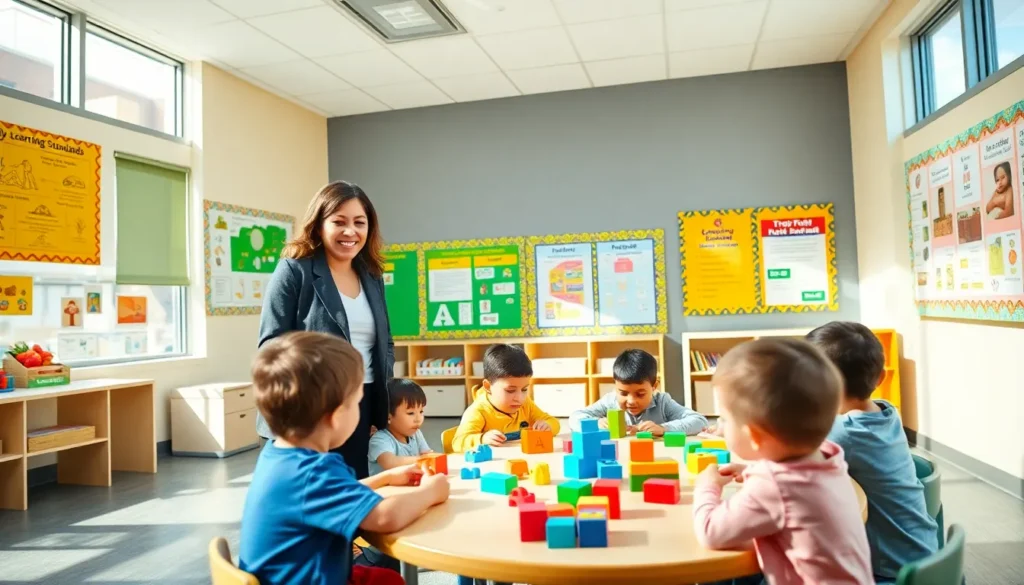Navigating the world of early childhood education can feel a bit like assembling IKEA furniture, confusing and often with extra pieces left over. But fear not. The SC Early Learning Standards are here to provide guidance and support to educators and families alike. These standards lay the groundwork for children’s educational journeys, ensuring they get the best start possible. Let’s immerse, find out what these standards entail, and, hopefully, clear up any confusion along the way.
Table of Contents
ToggleOverview of SC Early Learning Standards

The South Carolina Early Learning Standards serve as a roadmap for early childhood education. Designed for children from birth to age five, these standards aim to foster development in cognitive, social-emotional, language, and physical domains. They reflect the latest research in child development and aim to create a learning environment that nurtures every child’s potential.
By establishing clear expectations, the standards create an equitable foundation for education across the state. They help educators outline goals for children during their crucial early years and serve as benchmarks to measure readiness for subsequent grade levels. This provides consistency and continuity both in individual classrooms and across districts.
Importance of Early Learning Standards
Why are these standards so important, you may wonder? Well, consider this: the first five years of a child’s life are fundamental for shaping their cognitive skills, emotional health, and social relationships. Early Learning Standards guide educators to provide developmentally appropriate activities tailored to each child’s needs, supporting not only learning but also overall growth.
Besides, these standards help bridge the gap between home and school by ensuring everyone is on the same page about expectations. When parents and teachers share a common understanding of developmental milestones, it leads to more effective partnerships and supports the child’s learning journey. In short, they set the stage for a child’s future success, both academically and socially.
Components of SC Early Learning Standards
The SC Early Learning Standards encompass a variety of components essential for holistic child development.
Age-appropriate Learning Expectations
At the heart of the standards are age-appropriate learning expectations, which outline what children should know and be able to do at various stages. This ensures that educational practices match developmental capabilities, preventing frustration and promoting engagement.
Curriculum Framework and Alignment
Equally important is the curriculum framework and alignment. This component connects educational objectives with teaching strategies and assessment methods, creating a cohesive approach to learning. With an aligned curriculum, educators can provide consistent experiences, ensuring children build upon their skills and knowledge progressively.
Assessment and Evaluation Methods
Assessment and evaluation are critical in understanding a child’s progress toward meeting the Early Learning Standards. South Carolina encourages the use of various assessment methods, including formative assessment techniques that monitor children’s development in real time.
By using observations, portfolios, and developmental checklists, educators can gauge each child’s growth and identify areas that might need additional support. Importantly, assessments are not merely to quantify learning, they also inform teaching practices, helping educators adjust their strategies to better meet children’s needs.
Implementation Strategies for Educators
Implementing the SC Early Learning Standards effectively requires thoughtful strategies and support for educators. Professional development workshops are critical, ensuring teachers are well-equipped to use the standards in their classrooms.
Collaboration among educators fosters an environment of shared learning and resources. Also, integrating play-based learning strategies aligns beautifully with the standards: children learn best when they engage in activities that are both fun and relevant to them. This way, the implementation of standards becomes a natural part of the learning process, ensuring that children receive a well-rounded education.
Support for Families and Communities
For the SC Early Learning Standards to truly thrive, families and communities must be engaged as partners. Schools can help this by providing resources and information to help parents understand the importance of early childhood education.
Workshops, newsletters, and community events offer opportunities for families to learn about the standards and how they can support their child’s development. When families are informed and involved, they become advocates for their children’s education, creating a supportive network for young learners.








